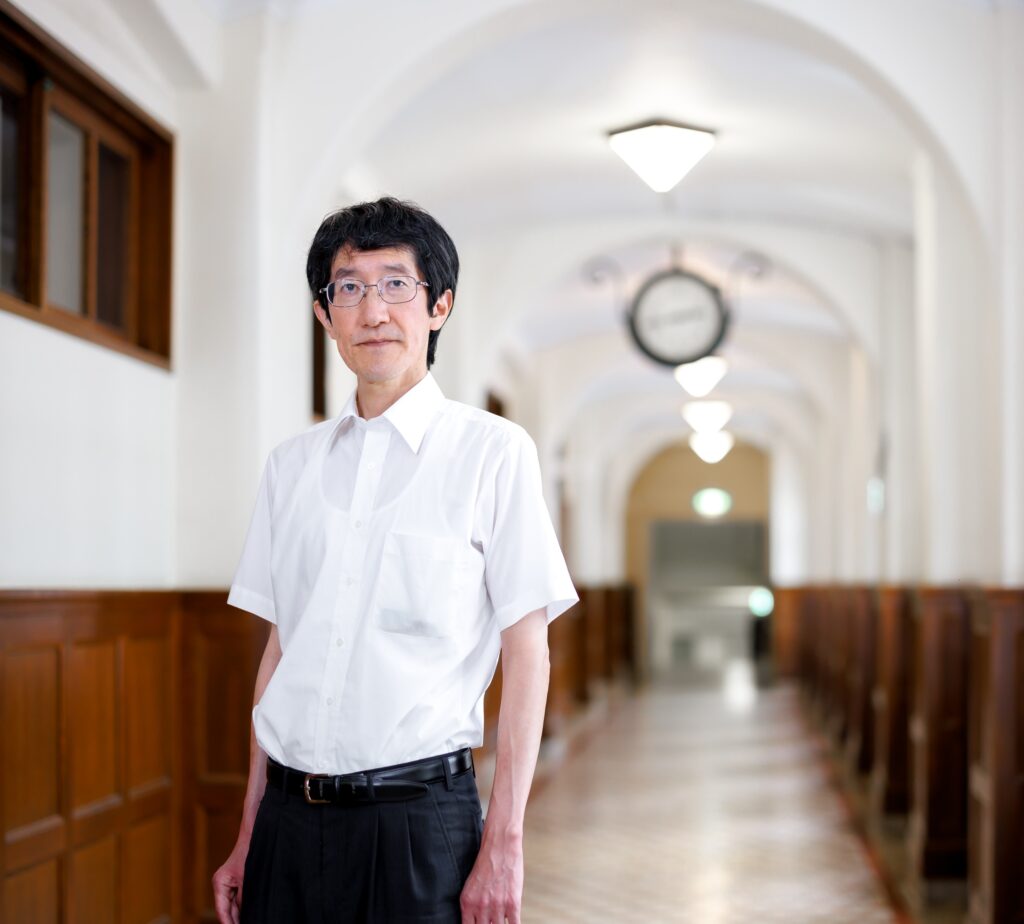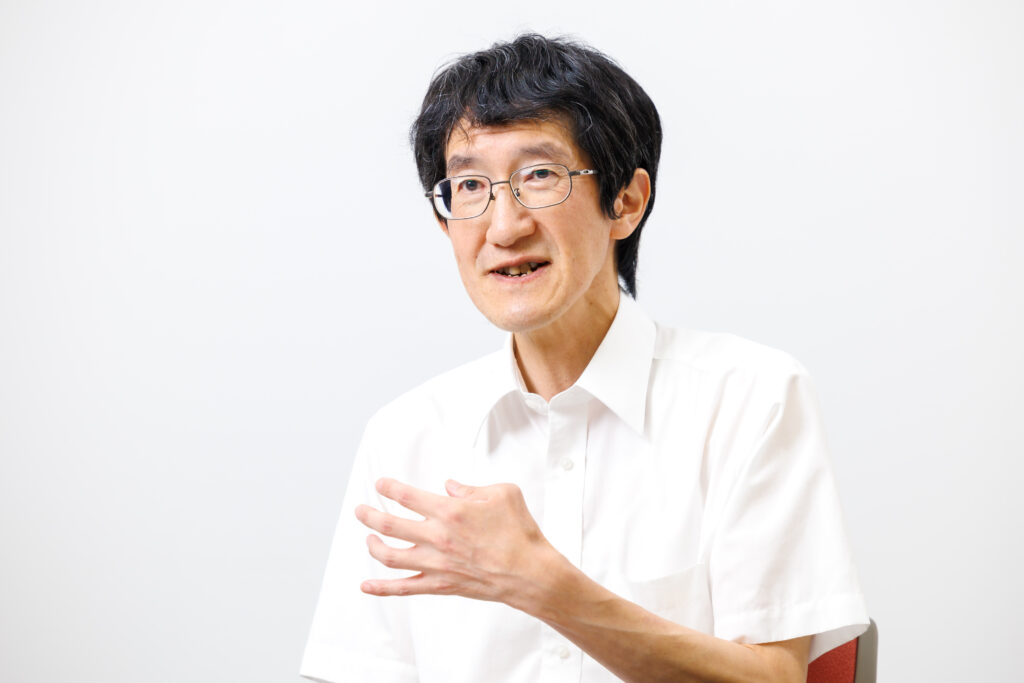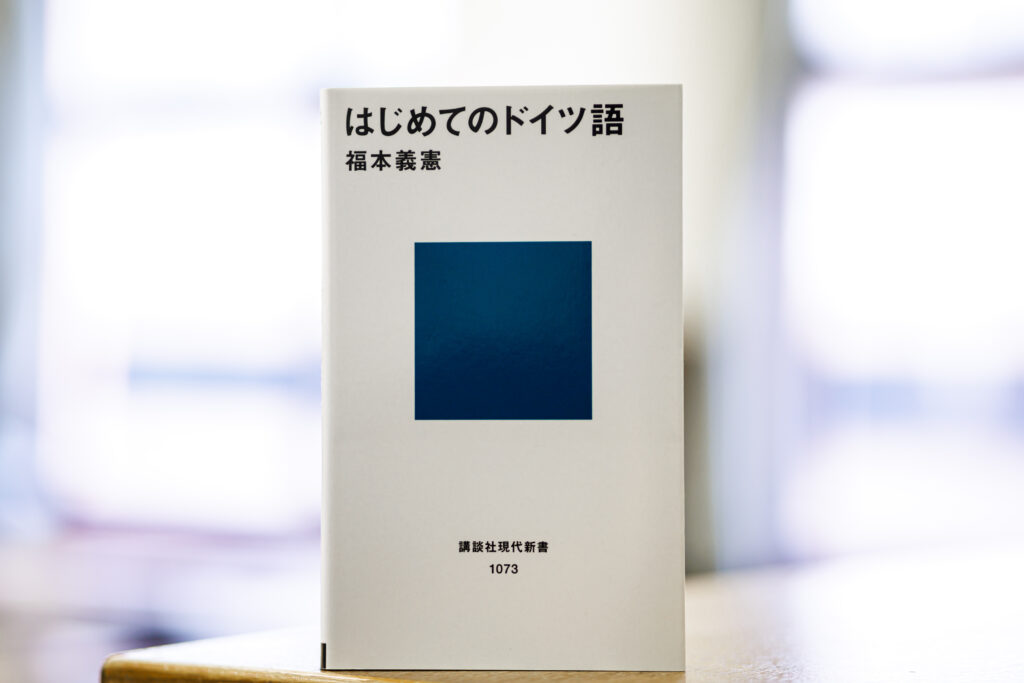
Professor Sanayuki Nakai of the Faculty of Humanities is an expert in German literature, and he researches about the 18th-century German thinker Friedrich Heinrich Jacobi. In criticizing the Dutch philosopher Spinoza, Jacobi had a powerful impact on thinkers of his generation. But what, exactly, did he believe in?
The German speaking cultural sphere lies in the heart of Europe; it is a web of diverse and complex cultures, and much of the literature created there is deeply intertwined with both philosophy and religion. In the 18th century, during the Age of Enlightenment, this region was profoundly influenced by the history of ideas, and works written around this time were permeated with discussions about God.
When I was studying at the University of Munich, I began researching on Goethe, and I subsequently wrote my doctoral thesis about Goethe’s novel, Elective Affinities. While working on my thesis, I had the opportunity to read the writings of Friedrich Heinrich Jacobi—an 18th-century German thinker and friend of Goethe—on Spinozism, and I learned that Jacobi’s critique of Spinoza had a major influence on contemporary scholars and philosophers.
Since then, for the last 20 or so years, I have continued to research about Jacobi.
Jacobi’s criticisms encourage acceptance of Spinozism

Baruch Spinoza was a 17th-century Dutch philosopher, who championed the idea of “deus sive natura”—a Latin phrase meaning “God or Nature.” He believed that all things were made of one substance, which he called God, or Nature. But since this necessarily denied the existence of a personal Christian God who had created everything from nothing, Spinoza was denounced as an atheist.
Jacobi was one of the few thinkers of his time to display an accurate understanding of Spinoza’s philosophical system; in his view rationalist thinking—which is rooted in reason—will inevitably lead to the atheistic philosophy of Spinoza.
Jacobi demonstrated a new way to understand Spinozism. German idealist philosophers from Kant onward, including Fichte, Schelling, and Hegel were inspired by his interpretations to accept Spinozism; as such, Jacobi served as an important catalyst for the history of ideas around that time.
After discussing Spinoza, Jacobi moved on to a critical appraisal of Kantian thought. The relationship between Jacobi and post-Kantian idealists is a subject I wish to research in the future, and therefore I am presently studying the critical philosophy of Kant. Jacobi also incorporates his philosophical ideas in works of literature, and I hope to study what impact the disputes with his fellow philosophers had on these literary works.
Memorizing texts leads to greater understanding
My research method is to reach a deeper understanding of texts by memorizing them. I read Jacobi’s works and, line by line, I carefully verify its relationship to other works and the reactions it provoked. It is a method that requires great patience, but repeated reading enables me to discover issues and interesting points of contention.
I believe that research in the humanities rests on a profound understanding of various texts. Even if you can demonstrate an original point of view, it will only be persuasive if it is rooted in the text itself.
Interest in Spinoza has increased in recent years, and a great number of works have been published about him. Thinking about the impersonal god of Spinoza leads to a deeper understanding of the personal Christian God, and the morals and the way of living it inspires. I believe that my research into Jacobi will help people think more deeply about notions of god and how we live our lives.
The book I recommend
“Hajimete no doitsugo” (A German primer)
by Yoshinori Fukumoto, Kodansha

This book explains the grammatical structures of German in an extremely clear manner. It helped me immensely when I started teaching German and had to explain German grammar in Japanese. I highly recommend it to newcomers to German literature and language.
-
Sanayuki Nakai
- Professor
Department of German Literature
Faculty of Humanities
- Professor
-
Professor Sanayuki Nakai graduated from the Department of German Literature, Faculty of Humanities, Sophia University; he received his Ph.D. in literature from the university’s Graduate School of Humanities. After working as an associate professor at the Department of German Literature, Faculty of Humanities, Sophia University, he was appointed to his current position in 2018.
- Department of German Literature
Interviewed: August 2022